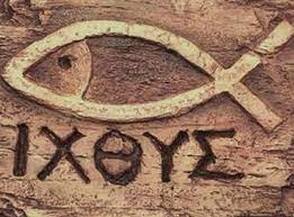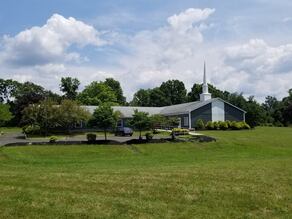 Luke 23:56b On the sabbath they rested according to the commandment. Today we rest. It has been a long journey for Jesus, and for those who have followed. We are tired, physically and emotionally. From the moment Jesus rode into Jerusalem on a donkey the pace has been grueling; we watched Jesus provoke and agitate and instigate, and frankly the pressure was intense. He had pushed so very hard, lived out his beliefs without compromise and the rest of us got swept up and struggled to keep up. Watching Jesus be arrested so... well... willingly! He didn't even fight back, wouldn't let the disciples fight for him- no resistance whatsoever! And then watching the religious leaders blindfold him, taunting and beating him with clubs- just the thought of it is sickening. The trial; the back and forth between Pilate and Herod, the questions, the mocking, the crowd!!! Demanding release of a criminal, and insurrectionist... and further calling for Jesus's death. Watching Jesus walk up that hill was heartbreaking; and those who stuck around to watch were absolutely amazed to see him offer forgiveness for all... even from the cross! When his head finally dropped to one side and he breathed his last, we felt like it was also, our final breath. We wept. We watched his body be taken down from the cross and laid in a tomb. We wept. We watched the tomb be sealed, we watched the women prepare spices for his burial ritual, and finally, like everyone, we went home. We wept. This morning there is nothing left in us. No words, no emotion, no energy to think, no tears left to weep... And so we have little alternative but to rest. Thank you Jesus, for the day of rest. We need it. Tomorrow the sun will rise; tomorrow love will rise; tomorrow we will be invited to rise. But today we are given a simple gift. Breathe in sacred rest. Rest in hope, rest in faith, rest in love... Restfully, Pastor Linda
0 Comments
 Luke 22:47-53 While he was still speaking, suddenly a crowd came, and the one called Judas, one of the twelve, was leading them. He approached Jesus to kiss him; but Jesus said to him, “Judas, is it with a kiss that you are betraying the Son of Man?” When those who were around him saw what was coming, they asked, “Lord, should we strike with the sword?” Then one of them struck the slave of the high priest and cut off his right ear. But Jesus said, “No more of this!” And he touched his ear and healed him. Then Jesus said to the chief priests, the officers of the temple police, and the elders who had come for him, “Have you come out with swords and clubs as if I were a bandit? When I was with you day after day in the temple, you did not lay hands on me. But this is your hour, and the power of darkness!” He knew it was coming. Jesus had predicted, forewarned, and foretold this moment; spelled out for his disciples that he would be turned over to the authorities, that he would be beaten, and that he would be killed. And now, the hour had come. The crowd had come. Did you notice Jesus wasn't arrested by a band of soldiers? Or, at least there are no soldiers mentioned in Luke's version of this story. Look who is in the "crowd"- Chief Priests, officers of the temple police (which are different than roman soldiers), Elders (!!!!) and the slaves of the High Priest! These are 'church people!' And they are literally up in arms! They are so intent on protecting their faith culture that they have brought clubs, swords, and who knows what else in order to take Jesus in... I'll leave that out there without commentary or sarcasm. I ask you to read that paragraph again before going forward. When that last paragraph sinks in, it may be that we feel indignant, or angry; we may feel disgusted and judgmental, we may even feel a little embarrassed. We've seen what people of faith can do when we feel threatened. We see how far we are willing to go to obliterate a threat to our "freedom," or a challenge to our theology. That's really what it is, isn't it? Jesus was challenging their theology... and something in his words rang true. It is the only reason to have him arrested; so they would no longer have to listen, no longer have to feel conflicted and convicted. Think about it; he wasn't telling them that they had to shut down the temple, or even stop practicing their religion as they knew it. So why would his words and actions be so threatening to them? Was it really that Jesus had done serious community organizing of the poor and marginalized? Surely with Rome on their side, the religious leaders could have stopped any kind of uprising of the disenfranchised. No- Jesus had clearly hit a nerve- by building a ministry based on love and compassion and rational thinking, he had touched something inside the religious elite that resonated with them... they knew he was correct. But to follow the words and teachings of Jesus, would mean that they would lose power, and it would also mean that they would have to acknowledge that they had it 'wrong.' So, instead of admitting they needed reformation and renewal, they resisted and responded by shutting him down. Don't judge. We do it all the time. We like things (especially spiritual things) packaged neatly so we can understand them. We like the feeling that we are in the right. We count on the fact that our beliefs, our religion, our church, has been teaching us correctly; that our pastors and leaders have taught us the right things about God and Godly living. We don't leave much room for free thinking, and even less space for our beliefs to change. Whenever our core values are challenged, when someone rejects the things we hold most dear, it serves to make us uncomfortable. Our discomfort in God being bigger than we thought, can quickly grow to anger, especially when we see others jumping on the bandwagon. This is normal human behavior. Jesus knew this about human beings. It's why he predicted so accurately that he would be arrested, beaten, killed. Its what happens to revolutionaries. It is the fate of anyone who stands in the face of injustice and preaches fairness and equity. It happens to heros; to those whose lives reflect mercy and compassion and love. Disciples, our lives also speak and reflect... may we live lives with space for God to grow bigger than we think, and grace for the challenges ahead. Have a blessed Maundy Thursday, Pastor Linda He knew it was coming. He  Luke 22:7-13 Then came the day of Unleavened Bread, on which the Passover lamb had to be sacrificed. So Jesus sent Peter and John, saying, “Go and prepare the Passover meal for us that we may eat it.” They asked him, “Where do you want us to make preparations for it?” “Listen,” he said to them, “when you have entered the city, a man carrying a jar of water will meet you; follow him into the house he enters and say to the owner of the house, ‘The teacher asks you, “Where is the guest room, where I may eat the Passover with my disciples?”’ He will show you a large room upstairs, already furnished. Make preparations for us there.” So they went and found everything as he had told them; and they prepared the Passover meal. If there Is a passage of scripture that emphasizes the danger Jesus and his disciples were in, this is it. Peter and John are sent to get things ready, and reserve a place big enough, so that Jesus and the others might share this most holy meal as one group. But this is not as easy as calling ahead to a local restaurant. In fact, its all very cloak and dagger like, isn't it? "Go into the city and a guy carrying a water jar will meet you..." says Jesus. "Follow him into the house he enters..." There must have been a network, as in any modern day movement, in which Jesus and the disciples communicated and could move around in safety. (Or, at the very least, by the time Luke wrote this account of the gospel, there was.) It's been set up before hand that the water carrier is the one that will lead them to the place of communion. It reminds me of us seeking/finding the one who has living water, who leads us to unity.... but that's for another blog. Followers of The Way, as they would come to be known, had many secret signals and signs within the movement. It was necessary as the movement continued to grow, and the authorities, both state and religious, grew more threatened. Believers needed a way to communicate, to organize, and to carry out acts, protests, and support. And thinking about it, it's amazing how quickly word was spread and how organized they were in a time of no phones and internet. Of course they had no information overload as we do. The people of the first century were not barraged with emails and texts and notifications and media blasts, so the important stuff got through, not buried under a pile of emails that remain unopened. On the other hand, they were just as weighted down with life as most of us are; they were just as stressed and worried about everyday living, jobs, kids, government corruption, as we are. Yet, they believed the Way was the path to a brighter future; that carrying out the commandments of Jesus would bring about a revolution. So they lived out his teachings. They took them seriously. And that meant, that they put themselves, their families, their friends, in danger. Of course they needed secret signs. One of the most well known signs of early Christianity, (from well after Jesus's death and resurrection), is the fish with letters, the Ichthys (pictured above). This was carved into, or attached to, the outside of a believer's house, so that others would know a safe haven and a coconspirator/peace agent. It was also placed on secret Christian roads, leading to churches. If a Christian met a stranger on the road, they could draw an arc in the dirt. If the other person drew the other half of the arc, completing the fish drawing, they knew they were in safe company. Pretty cool, right? It has me thinking today, what signs we have to alert other believers that we are also agents of peace; that we are a safe haven. What sign would lead them to our church? What visible things do we do in plain sight, that other Christians know that we are living out the teachings of Jesus, and working toward God's shalom? And I'm not talking about a lawn sign or a wreath or a nativity set or even a welcome plaque. We have moved beyond a fish on the door. The cross has been commercialized and even claimed as an emblem by some groups that are far from the teachings of Christ. We need more than a symbol of safety. Our very lives need to be reflective of who we are, and what we believe. Like the old hymn "they will know we are Christians by our Love." It is the only way others will be able to recognize a place of safety; when we are known for carrying the living water of love. As we prepare for tomorrow, Maundy Thursday, may God grant us light; may we gain insight as to how to live as modern day disciples so that others may be led to communion. Peace, Pastor Linda  Luke 22:1-6 Now the festival of Unleavened Bread, which is called the Passover, was near. The chief priests and the scribes were looking for a way to put Jesus to death, for they were afraid of the people. Then Satan entered into Judas called Iscariot, who was one of the twelve; he went away and conferred with the chief priests and officers of the temple police about how he might betray him to them. They were greatly pleased and agreed to give him money. So he consented and began to look for an opportunity to betray him to them when no crowd was present. Judas called Iscariot is one of the most disliked and simultaneously pitied figures in all of history. He's the one who from the beginning of the gospels is named as the one who would deliver Jesus into the hands of the authorities, leading to his crucifixion. I used to wonder what would have happened if Jesus had chose someone else to be his 12th disciples instead of Judas... say, Jerry of Iscariot or something like that. Would Jesus still have been arrested had he chosen someone who would have been more loyal to the cause; to Jesus himself? Would Jesus have still been crucified if 'Jerry' had been there to protect Jesus instead? Another question has always haunted me about Judas... well, actually about the other disciples. When Jesus tells them, as a group, that one of them will betray him, they ask him one by one, "is it I?" Really??? I would hope that if I am actively engaged in a radical revolutionary movement and the leader announces they will be betrayed, I wouldn't have to ask them if I am the one who will do it! I would hope that I'd know the level of my own loyalty. Especially if I'd "left everything to follow" Jesus as the disciples had done. So... Not to be too heretical here, but is it possible that the other disciples had also been approached by the religious leaders to see if they would do what Judas did? Could they have flirted with the idea of betraying their leader? And... following that train of thought- here's another question. Why, when Jesus named Judas to be the one to betray him, didn't the other disciples stop Judas from doing it? Why didn't they restrain him, or argue with him about it? Why let him just slip out of the room to carry out his plan? The story does lend itself to these and other questions. Yet, Jesus had told the disciples over and over that the road he was on would to lead to his death- that he would be handed over to the authorities, and be killed, and in three days rise. The disciples knew it was coming. Was it part of Jesus's plan all along that Judas would be the one to do it? Did the others also know in advance? Looking deeper for possible answers, there are two important words in this passage that need mention, which may help shed some light for us. The first is Satan. The text says (even in Greek) that Satan entered into Judas and that's what enabled Judas to carry this out. The word satan, is translated, adversary, accuser, and both of these words work. Conversely, the word devil, the one we picture with red suit and horns, does not. (That's a different word) In Judas's mind, adversarial or accusatory thoughts entered, took root, and grew. He is portrayed repeatedly in the gospel as not really understanding Jesus's mission, and perhaps things had, in his mind, gone far enough- and it was time to put a stop to it. Except, if that were true, then, as I mentioned already, the other disciples surely would have tried to stop him, right? The other troublesome word in the passage is Betray. I'll spare you the Greek geekiness and cut to the chase. The root of the word betray simply means "to give or offer." The full word means to "hand over, give, deliver, entrust" something or someone to another. It is the word that was often used for passing down traditions and even documents. When used in reference to a person, it means to "hand or turn that person over, give up (as in hand over into the custody of)." This is the same word Jesus uses when he tells his disciples that he will be "betrayed" to the authorities. There are a couple of well thought out theories you should know about: 1. Jesus and Judas had planned almost from the beginning that Judas would be the one to turn Jesus over to the authorities. (This is depicted in the recently discovered, Gospel of Judas) 2. Judas was impatient- he was in fact 'all in,' a zealot by some accounts, and wanted to get the revolution started. You can look both of these theories up right on Google, and no doubt you will find a host of information and misinformation about both of them. I'll leave them for you to ponder as to their validity. I do know that in the end, despite the questions I hold or the holes in the story, Judas bore the brunt of what he did. Judas alone carried the guilt and shame, and when it finally became too much, he ended it with a noose and a tree... History (and honestly, most of us) despise Judas. Yet, should we follow the thread of our disdain for him, or even our pity for him, that thread will eventually lead us right back to the depths of ourselves; it will shine a mirror on our own lives and our own accusatory, adversarial thoughts, feelings, and actions. As disciples of Christ, it is difficult to reconcile all of that. The good news is that we don't have to. Jesus reconciled it for us. Christ reconciles it even today. There are some questions in scripture that we may never fully understand, and despite the theories and the "proof" we seek, in the end, we need to hand it over to Christ; in fact to hand ourselves over to Christ, to allow ourselves forgiveness and mercy through Christ. Believe the good in people. Believe the good in ourselves. Believe the good Christ says the world can be. It is and always will be the only reconciliation we need. Peace, Pastor Linda  Luke 19:45-48 Then he entered the temple and began to drive out those who were selling things there; and he said, “It is written, ‘My house shall be a house of prayer’; but you have made it a den of robbers.” Every day he was teaching in the temple. The chief priests, the scribes, and the leaders of the people kept looking for a way to kill him; but they did not find anything they could do, for all the people were spellbound by what they heard. Jesus the revolutionary, weavolutionary (1), figure has entered Jerusalem, as other Kings of Israel did, riding a donkey. After he stops to weep for the city, overflowing with compassion for the ones who did not understand the breadth and depth of God's great love, he heads for the temple. Jesus's decision to go straight to the temple, like everything else he did, was intentional. "The Temple Mount in Jerusalem, built by Herod Antipas at the beginning of the century, was held up as the one and only place where God dwelt. We have nothing quite like it today. It combined worship, commerce, local government, execution site, and imperial control. It would resemble some massive building in Washington, DC, containing the Pentagon, the US Capitol, the White House, Wall Street, the World Bank, Citibank, Goldman Sachs, Walmart, the National Cathedral, and the Shrine of the Immaculate Conception—all rolled into one as God’s home on earth."(2) The temple that indeed needs cleansing, and Jesus, in a premeditated act of civil disobedience, turns over tables and drives the moneychangers (people who would exchange local monies for temple currency- most often leaving folks shortchanged) out of the temple. Often when we imagine this scene, we picture an angry Jesus who has lost control of his temper and resorted to violence. This image is backed up by paintings, and tradition, and no doubt countless sermons, justifying what we like to call, "righteous anger," or "necessary force." It is the pericope to which we refer in order to excuse losing our tempers with one another. We claim this scripture in order to justify inflicting violence on criminals, and even to attack other countries in war. Note: Nowhere in the text does it say that Jesus got angry. Nor does it say that Jesus harmed a soul. In the gospels of Matthew, Mark, and Luke, Jesus has nothing at all in his hands. In the gospel of John, where he is described holding a whip of cords, he is also not angry. "This reference to a “rope” or a “whip” is the only instance in the entire Bible for that particular obscure Greek word. To get thousands of sheep, oxen, and doves into this enormous structure... cattlemen and shepherds used cords and ropes to lead animals up the high stone walkways into the building. Jesus simply took those cords, which the cattle, sheep, and oxen would have recognized, and started to drive them outside. Then he overturned the bankers’ tables and launched into his speech."(3) So while John's gospel is more amplified in its description, it is nonetheless as non-violent as our passage today from Luke. Jesus is not angry, nor does he resort to violence. On the contrary, he preached numerous times about NOT being angry. Why is it so important that we understand Jesus as a non-violent figure? Because Jesus is our best example of the character and nature of God. If Jesus could get angry and resort to violence in the temple, that would mean that God could get angry with us and inflict violence on us... and God doesn't do that. God loves. God IS love. God heals. God forgives. God restores. God will never, NEVER, get angry with you or inflict violence on you, oh most cherished of creations. What do we do then, with a world so badly in need of renewal? Our urgency to create a more peaceful world often leaves us scratching our heads as to how to go about enacting change. What's more, when humans feel threatened by those forces around us, fear leads us to acts of desperation. Watching injustice played out before our eyes day after day brings us to the point of frustration, cynicism and jadedness. But take heart. While we may not be the most patient , we are the most creative species on the planet. We've been given examples of non-violent noncompliance and civil disobedience to look back on. Through the life ministry of Jesus we can learn the core values of our faith; the whys of change. From that time until now we can look to figures like Ghandi and Martin Luther King Jr. as more modern examples of what nonviolent movements looks like. God's righteousness making activity in the world in ongoing. You and I are invited to be a part of it- peacefully. And yes, thoughtful, premeditated acts of civil disobedience may be required. We may been viewed as activists, protesters, even criminals for our actions. We would be in good company. Peacefully plotting, Pastor Linda (1) Weavolution is a sermon series about Jesus's way of interweaving our lives together as God's people; intricately and intrinsically connected to Christ as seen in the gospel of Luke. (2&3)- If you are interested in social justice and scripture check out this website in total, but first, for a really great article on Jesus and non-violence in the temple, click this link. Thank you John Dear for your thoughtful and wise words. https://christiansforsocialaction.org/resource/nonviolent-revolutionary/  Luke 17: 20-21 Once Jesus was asked by the Pharisees when the kingdom of God was coming, and he answered, “The kingdom of God is not coming with things that can be observed; nor will they say, ‘Look, here it is!’ or ‘There it is!’ For, in fact, the kingdom of God is among you.” Finally! Here it is spelled out in black and white! (Or red, if you have one of those cool Bibles with the words of Jesus typed in vivid color.) The answer to the question that burns in everyone's heart, is on everyone's mind, in everyone's hopes for a better, brighter future... WHEN??? In the words of the Psalmist, How long oh Lord? When will you intervene? When will it be 'on earth as it is in heaven?' When will your kingdom come? These are fair questions. We are tired of missing the mark. Even the Pharisees among us suffer at our inability to keep the simplest of commandments. It causes believers great pain to know that we've fallen short of loving our neighbor as our self; that we haven't really taken care of the least of these. We balk at the strength of our own ego. We shudder at the lengths we take toward self preservation and advancement. And our shortcomings fly in our face every time we pray, every time we pause to think about God's grace, or look at the world through the eyes of selfless compassion. How long oh Lord? When will you intervene; come down from heaven with lightning-bolt-irresistible-power and change our hearts and minds? When will we be so bowled over by the proof that you exist that we will have no choice but to give up all else and follow your plan for us? When Lord, will you bring about peace, so that we can finally be happy? So, If Jesus Is Messiah, as these Pharisees infer even in their asking him such a question, then he must know when the suffering will end. It's a fair question. Jesus turns to them in a way reminiscent of a scene right out of Frank Baum's Wizard of Oz- Glinda turns to forlorn Dorothy, desperate to find her way home, and points to the ruby slippers on the girl's feet. "You've always had the power my dear, you just had to learn it for yourself." The kingdom of God is within us. God has given us the ruby slippers. Every power, every tool, every ability to bring about everlasting peace... on earth. Jesus calls our 'ruby slippers,' the keys to the kingdom. But like Dorothy, we don't notice or have never been taught about the great power at our disposal. We have been told instead that we are broken sinners, that we cannot attain God's will for us, can not even keep the commandments much less do anything else toward shalom. We have Internalized the ideology that we are weak, and Christ is strong- that we can do nothing on our own. While that is true- we leave out one obvious fact: Christ in us! We are not weak since we live in Christ, not powerless because Christ lives in us. So often we are afraid to claim that power, much less tap into it. We walk around with our heads down, thinking that we must endure worldly ills until Christ comes. Christ is here! In each of us! Click your heals three times, Dorothy. Put your faith in the power within you, the power of the risen Christ. For the kingdom of God is among you!  Luke 17: 11-19 On the way to Jerusalem Jesus was going through the region between Samaria and Galilee. As he entered a village, ten lepers approached him. Keeping their distance, they called out, saying, “Jesus, Master, have mercy on us!” When he saw them, he said to them, “Go and show yourselves to the priests.” And as they went, they were made clean. Then one of them, when he saw that he was healed, turned back, praising God with a loud voice. He prostrated himself at Jesus’ feet and thanked him. And he was a Samaritan. Then Jesus asked, “Were not ten made clean? But the other nine, where are they? Was none of them found to return and give praise to God except this foreigner?” Then he said to him, “Get up and go on your way; your faith has made you well.” Ah, the power of the 'thank you note.' Some of us are so good at it; upon receipt of a gift or directly following a dinner party, we open up a box of smaller than average cards (which of course, we already have), and handwrite thoughts of gratitude to the giver. In the note, we are sure to mention the details of the gift; not just a generic "thank you for your generosity." We write why we appreciated it, and express how much it meant so much to us to be remembered. Then, we send them out quickly (of course we have stamps!) to insure a timely delivery. Others of us... well... It's not that we aren't grateful. It's not that we don't mean to get around to sending thanks, or saying thanks... its just that we... (you can fill in the blank: aren't organized, don't have supplies, haven't been taught about a thank you note, think thank you notes are outdated, are protesting the post office, forget to send one, got distracted by a situation in your life that's begging for your attention, etc. etc.). In this passage, Jesus is traveling between Samaria and Galilee. We know about Samaritans, especially in the Gospel of Luke. Jews and Samaritans don't mix. They don't talk. They don't have dinner parties together, and don't give gifts to one another. We know about the negative reaction of the crowd when Jesus had made a Samaritan the hero of a parable.; the shock and surprise than anyone from Samaria would end up to be the neighbor... the "good guy." So when Jesus heals ten lepers, and it is the Samaritan who is the only one to remember to send a thank you, I can imagine that those around Jesus must have had their feathers ruffled. It happens to us every time we come face to face with one of our prejudices, or when our stereotypes for people don't ring true. When we are forced to rethink we believe to be true of 'them.' Yet, if it were as easy as that, if being proven wrong about those we've categorized and compartmentalized and demonized is all it took to for us to change our minds and soften our hearts, the world would not be struggling as it is. How do I know? Because we get "proven wrong" about our beliefs about people all the time. One of "them" does something outside the lines of the circle we've drawn around them, and we are amazed. And for a moment we might question our prejudice. More often however, that person becomes "an exception." We may even give that person admiration for pulling themselves away from the rest of the pack. We might begin using them as an example for our own benefit and power, and in order to keep the rest of that group marginalized and oppressed. Jesus has healed ten. He has healed all. He didn't stop to ask where they were from. There was no differentiation between them, as a matter of fact, we don't know how many of the ten were actually from Samaria. Luke doesn't tell us that. We do know that most of them took the gift of healing that was given them and skipped away with it; grateful, happy, healed. I'm sure they would have said thank you had they thought of it. I'm sure they told others what happened to them. I'm sure they showed the priest, as Jesus requested and maybe thanked God right there in the sanctuary. I'm sure they were so excited to be restored to community life and health that their thoughts were in a thousand places. Their futures went from dark to bright. I can't blame them for being so excited that they got swept away and forgot to come back to say thank you. I'm sure that later on, when the moment had passed, they thanked God in their prayers and praised God with their lives. Sometimes It happens that way. God has given all of us miraculous gifts; heals our leprocy (what keeps us separate from the rest of the community), comforts us in our pain, points us toward renewal, gives us even the gift of breath. Sometimes we remember to go back and say 'thank you' for some of it, when/if we take notice. Sometimes we are too focused on other things to give these miraculous gifts much mind. Sometimes, we worry about what the priest might say of our healing, or our concern goes from being made well to looking for a job, or keeping our kids out of trouble, or any one of a hundred other situations begging for our attention. Being healed of leprocy doesn't take away every problem of our lives. So though we may be grateful, for the most part we skip away on our own, either oblivious to the gifts we've been afforded, or moving on to the next big thing life throws at us. If you notice, Jesus doesn't condemn them for it either. Jesus knew and understood the other nine, just as he knows us and our desires and failures to do the right thing 100% of the time. But since Jesus is all about healing, he simply asks the crowd, "where are the other nine?" And points out for the benefit of his listeners that the one who came back to praise God was a "foreigner." The crowd needed and was offered the bigger healing. I wonder what bigger healing is offered us today? What "them" are we being asked to see differently? Who should we be loving differently? And perhaps, stop today and send a thank you to the one who gives us everything we need.  Luke 17:7-10 “Who among you would say to your slave who has just come in from plowing or tending sheep in the field, ‘Come here at once and take your place at the table’? Would you not rather say to him, ‘Prepare supper for me, put on your apron and serve me while I eat and drink; later you may eat and drink’? Do you thank the slave for doing what was commanded? So you also, when you have done all that you were ordered to do, say, ‘We are worthless slaves; we have done only what we ought to have done!’” These words of Jesus sound so harsh, don't they? Maybe he was fed up. Maybe he was annoyed or overtired from being on the road. Maybe he had a hangnail or a bunion and the nagging pain just got to him and he lashed out. Maybe... Or- What If he wasn't lashing out? What if Jesus's response to the disciples was a simple explanation of the gifts they'd been given and the mission to which they had been called? The disciples had just been told to keep stumbling blocks from children; to teach children the basic truths of God's kingdom: love your neighbor, don't return evil with violence, don't get angry, forgive, forgive, forgive... If they don't, claims Jesus, they and the next generation will be dragged down even farther, as if they had a millstone around their neck. In response the disciples ask for more faith, and Jesus tells them they have all the faith they need- and then gives an illustration. Jesus chose a metaphor they could understand. In the first century, the disciples would have been quite familiar with the relationships of slaves to master. As moderns, we balk at the very thought of slavery, but in that context it worked. A slave does what the master tells them to do, without a thought to their own ability. The slave doesn't question the master as to whether or not the slave is capable of doing the work assigned. They simply do it; assuming that the master knows they will complete the task, and that they have every tool and every talent needed in order to complete the task. The disciples have asked for more faith. Jesus tells them they have all they need. He reminds them through this illustration that, for them to ask for more faith, is really a way of telling God that God has made them unable to do this on their own. The assumption on the disciples part is that God has commanded them to do something that is beyond their ability. That God would give them a task they are not capable of completing without "extra" help. Asking for more faith infers that God has not given them enough to start with; and perhaps that God hasn't really thought this thing through, and doesn't really know them as well as God thinks. It says that they know, more than the God who created them, of what they are capable. It says that they do not acknowledge that they are made in God's image, and hold God's Spirit within them. Jesus tells the disciples over and over that God has given them everything they need to do all that God requires. "The kingdom of God is within you..." In our modern context the illustration might sound like this: I am an office manger and my boss asks me to make a copy of something. I should assume that my boss knows that I am capable, without extra help, of pushing "print" on the copier. To tell my boss I need more tools to do the job, means that my boss has not supplied me with a copier, paper, ink, or ability. Yet all those things are right in the office. My degree hangs on the wall from business college. Asking for more help questions my bosses judgement in hiring me in the first place. Jesus tells the disciples NOT to question God's opinion of them; not to question God's judgment. They are not just chosen for this mission, but God has given them all they need- they are made in God's image. When we learn of God's plan for our lives, for humankind, we deflect much like the disciples. We find reasons why we are not, or do not feel, able to live it out. We look at our lives through our own lens of experience instead of seeing ourselves as God made us. We fail to notice the power of the Spirit that resides in us. And so we turn it back on God- "Give us more faith! We can't do this on our own. We don't have what we need! We are too weak, too sinful, too... " The Kingdom of God is within you. God has created you fully equipped to do everything God has ever or will ever ask you to do and you are made in God's image. Peace and love as you meditate on this challenging message today, Pastor Linda  Luke 17: 1-6 Jesus said to his disciples, “Occasions for stumbling are bound to come, but woe to anyone by whom they come! It would be better for you if a millstone were hung around your neck and you were thrown into the sea than for you to cause one of these little ones to stumble. Be on your guard! If another disciple sins, you must rebuke the offender, and if there is repentance, you must forgive. And if the same person sins against you seven times a day, and turns back to you seven times and says, ‘I repent,’ you must forgive.” The apostles said to the Lord, “Increase our faith!” The Lord replied, “If you had faith the size of a mustard seed, you could say to this mulberry tree, ‘Be uprooted and planted in the sea,’ and it would obey you. Mustard seed faith; is that really all we need to uproot a tree? And don't we have that, at least, by now? After all, we've been following Jesus for quite some time. We've seen the miracles. We understand (we think) his plan for the future, especially since we have the gift of hindsight. As moderns, we have the whole book! Granted, the disciples had the added bonus of live and in-person Jesus. No doubt they asked him countless clarifying questions; "What do you mean by that?" and the like. But, you and I can look over the full course of Jesus's ministry; we can translate, re-read, re-interpret and re-evaluate what this all means for our lives and for our world. Jesus revealed his plan for humankind and we know it will work, should we employ it. We also know that thus far in the Gospel of Luke, Jesus has been talking a LOT about religion, and how it has been/can be used to teach people more about their brokenness, and less about their righteousness. Here, he addresses both. To paraphrase: "Listen," says Jesus, "you're going to mess up from time to time. There will be some things that you've been taught in the faith that you hold dear; teachings that mean the world to you, precepts you can't seem to give up or let go of. These are stumbling blocks; they keep you bound to a system that does not work, and will hold you back from embracing all that God has for you." 'Stumbling blocks,' are things that we learn early on in our faith journey. As we've talked about many times, what we learn first about something, usually sticks with us. We internalize it. It takes root in us. Very often, what we learn about first about the nature of God, sticks. And once a tree has taken root, it is so tough to pull out. For instance, if we've learned first that it is in God's nature to find us acceptable only if we behave in a certain way, and we can't let that go, we will continue to struggle to embrace God's unconditional love. If we've learned God is to be feared, or is waiting with a lightning bolt to toss down at us when we slip up, we will be forever walking on eggshells in our relationship with God. If we've learned that God's forgiveness is limited and that God is wrathful, then we will adopt a belief that at some point we can push God over the edge, and that God will give up on us. Jesus knows all of this. He knows how religious zeal brought about a desire to please God, and how that grew from desire to dogma. He knows how difficult it will to live without a strict set of rules for a people seeking black and white rules. He knows the challenge for the disciples and new converts who have been taught/internalized things about God and about themselves that are untrue. And there is grace for that. Then he turns to the teaching of children. "Woe to anyone who causes one of these little ones to stumble..." It reminds me of the Crosby, Stills, Nash song 'Teach Your Children." We hope for our children that they will learn from us, truths about God; that they will have cherished memories of young faith, that they will internalize that God loves them, exactly as they are, no matter what. Yet they will receive from us are the truths we model for them. They will learn from us and our example, by watching, mimicking, and following our teachings, as the disciples did with Jesus. If they learn the same truths we did about God, if the next generation learns they are broken, sinners, unworthy, and waiting for a wrathful God to get fed up and smite them, we just perpetuate the misuse and abuse of religion. We will lead another generation astray instead of teaching them how valuable and holy and pure they are; that they have it in their hands to turn the world to a better tomorrow. If we don't teach them well, that they are loved and acceptable, Jesu tells us it will weigh us down even further- it will pull us under like a millstone around our neck- all of us. Yes, it sounds like a tremendous amount of responsibility; that the future, our children's future, the worlds future, is indeed in our hands. No wonder the disciples asked for more faith! Yet everything we need is already within us. With the smallest amount of faith we can uproot the biggest obstacles of THE faith. We may not be able to remove our own stumbling blocks, and will surely trip over them from time to time, but we do not have to help our children plant stumbling blocks of their own. Those trees can be uprooted and thrown into the sea. With just mustard seed sized faith. Here's the link to the song... you're welcome! Peace, Pastor Linda  Luke 14: 34-35 “Salt is good; but if salt has lost its taste, how can its saltiness be restored? It is fit neither for the soil nor for the manure pile; they throw it away. Let anyone with ears to hear listen!” There was a period of about 15 years when my family were members of a Southern Baptist Congregation in Central NJ. (Yes, there is such a thing!) I didn't realize it then, as I had grown up Presbyterian, but the church was pretty progressive as SBC's go. Though the Pastor was male, there were a host of female leaders, including a female minister in training from a local seminary. My faith grew during our season there in ways I can not measure. Bible studies and adult Sunday school classes were rich; no one shied away from difficult texts, in fact we jumped into them with both feet. What's more, we discussed their real-life application- in other words- how the scripture was relevant to, and could be lived out in Christian living. Discipleship was serious. Prayer was a part of every church gathering. And there were expectations for church members. "Being a Christian Is hard work," said the pastor. "When you answer the call of Christ, you change the way you live, the way you raise your children, the way you spend your time, and the way you spend your money. You become salt and light to the world in how you live it out." The people of the church lived it out. We congregated at least three times per week; Sunday Morning worship, Sunday Evening worship, and Wednesday Evenings for supper (yes, we had supper together every Wednesday) followed by group meetings, youth clubs, and choir practice. We hosted picnics and group outings and holiday parties and barbecues. Our kids trick or treated together and went to camp and did homework in the church kitchen. It was community in all the best sense of the word. But living it out meant more than going to church and being with church people. Discipleship meant the stuff that happened in between 'church' times. We were to be intentional about trying to live as salt and light in the world. Like salt, Christians enhance the flavor, richness, body, of who and what is already around us. Like salt, we bring out the best in each other, in the people we meet, and bring our best to the situations we encounter. We bring it with a peaceful spirit. We bring it with sincerity. We bring it with hands on help and healing. We bring it with compassion and presence. We bring it- we add it- always to uplift, always to encourage, always to empower. As Jesus leads this movement of radical love forward into the world, he gives a metaphor his followers can relate to- in fact, they can taste it. Sometimes we leave off expectations when we talk about church membership or being a Christian. We all make so many mistakes, that many times we focus on the forgiveness part, and leave out what Christ actually expects of and hopes for us Christians. Being a disciple of Christ is more than attending church and reading personal devotions and scripture and prayer... we are expected to be salt and light to the world... we live it out. Peace, Pastor Linda |
Rev. Linda PepeLoving life, light, and laughter... Archives
April 2021
Categories |
 RSS Feed
RSS Feed
